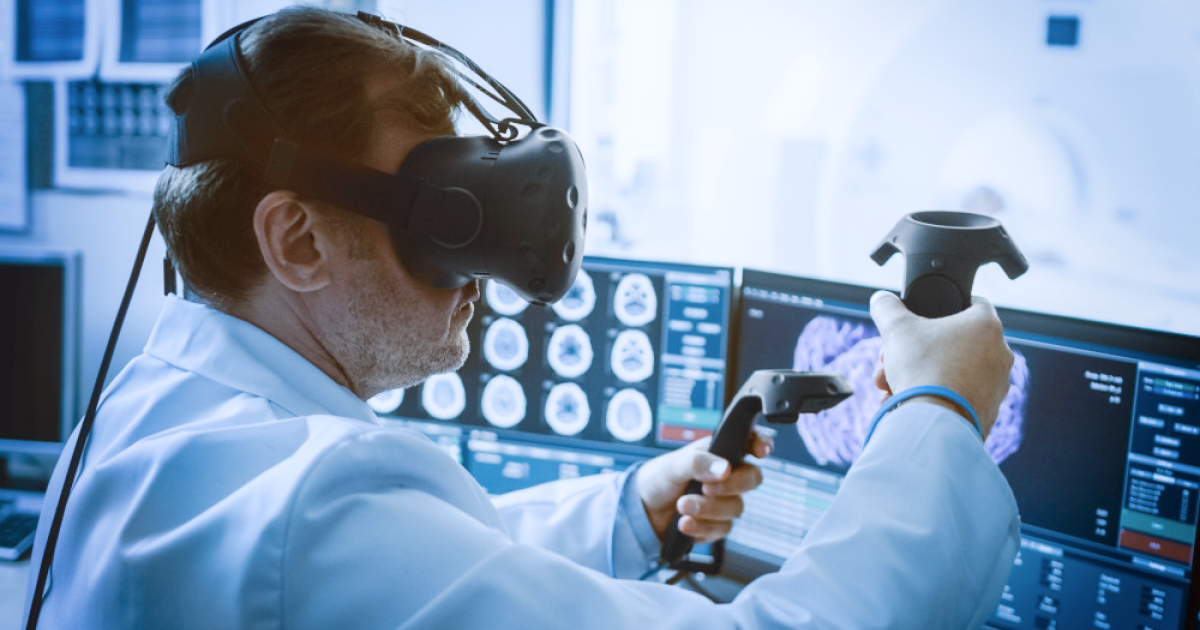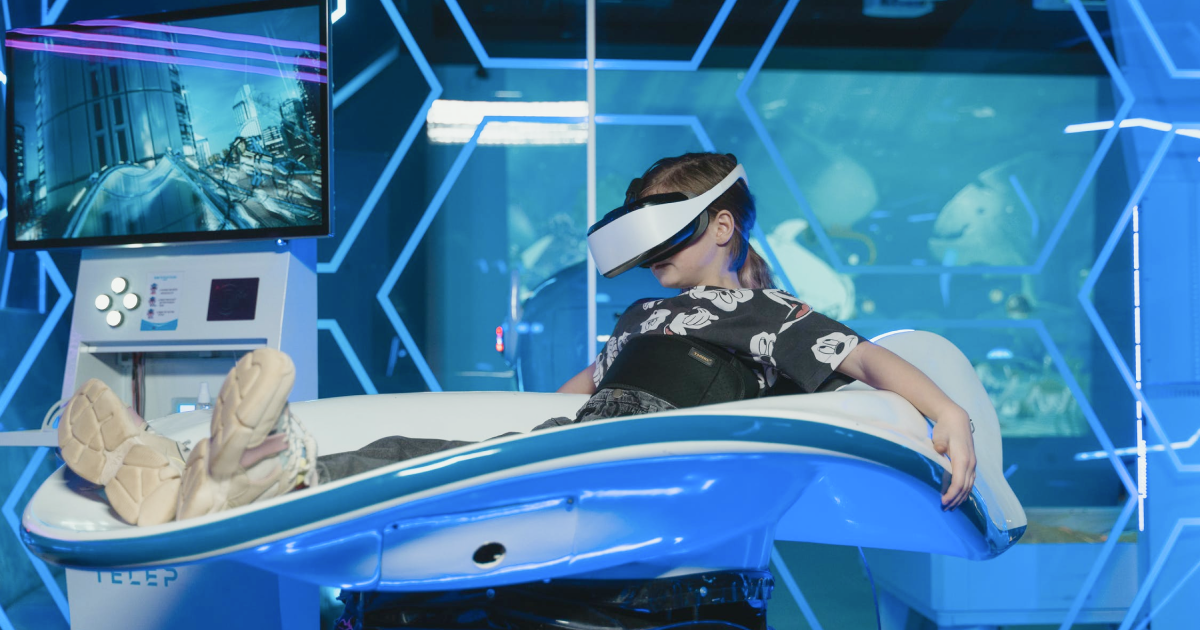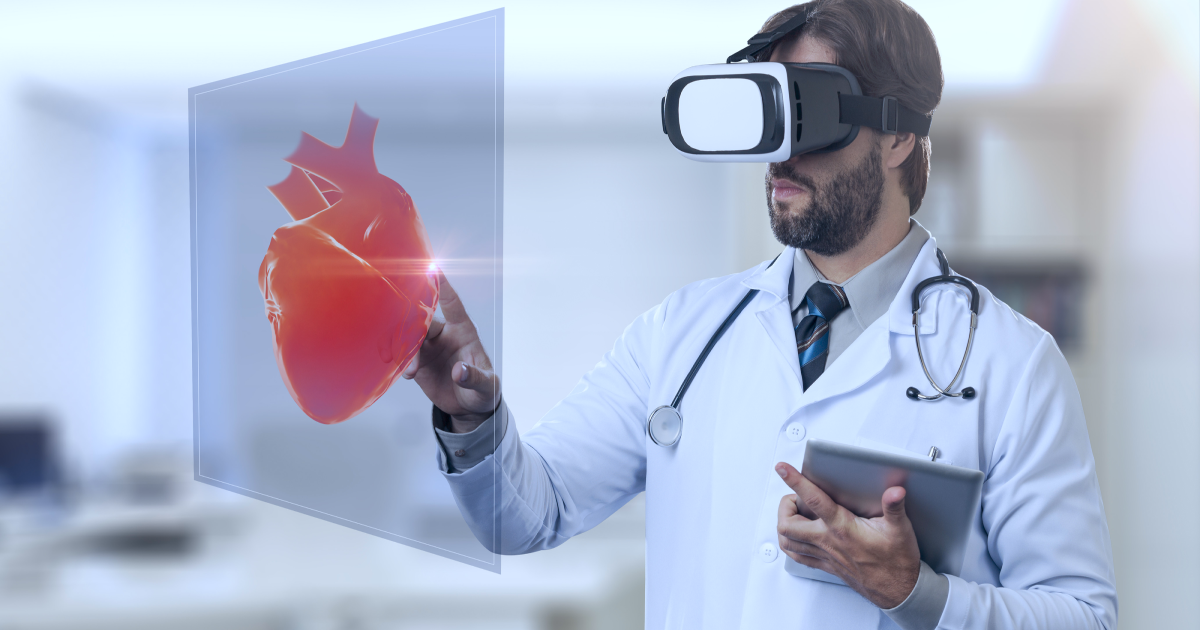How virtual reality in medicine is changing the industry


High technologies have long been not just some weird companions of our daily life, but the factors that determine the direction of this life. However, in its early days, many of the most sophisticated and respected modern technologies were not taken seriously. One of these technologies is Virtual Reality (VR).
Perceived in its early days as a toy for geeks and gamers, today VR is one of the most promising areas for investment. Starting from the gaming segment, the technology has found its application in the most severe and important industries. Healthcare is one of such industries, of course. In our today’s material, we wish to talk about how Virtual Reality in healthcare is changing the industry, our lives, and our attitude toward technology.
How exactly is VR being used in healthcare today?
While the technology is not yet ubiquitous, it is already transforming the industry. Thanks to VR technologies, new opportunities for medical personnel practice are created. In addition, VR is widely used in such areas as therapy and marketing. Finally, this technology allows specialists to achieve hitherto unknown success in raising awareness of various diseases among ordinary people. Let’s talk about each of the opportunities in more detail.
Medical practice
The practice of using the bodies of deceased people in medical training has been known since the days of Da Vinci, who was personally involved in this. Unfortunately for Leonardo, he lacked VR technology. But we have it. As a result, each student can get a real hands-on experience of performing complex surgery inside the human body in a high-quality 360-degree video environment. Products such as Medical Realities achieve this outstanding result by combining high-quality footage of real human body parts and adding computer graphics in post-production. As a result, medical students gain invaluable hands-on experience in complex surgeries.
In addition to such practice, VR products like ImmersiveTouch allow medics to observe the work of experienced surgeons without standing next to them over the body but being directly at the scene of events. However, some specialists call that one of the disadvantages of virtual reality in healthcare, since no technology can replace a shared experience with a real person.

Doctors are already streaming medical operations performed at VR in order to popularize this method of teaching and gaining practical experience. The first of these streamers was Dr. Shafi Ahmed, who streamed his video online in 2016. This direction is one of the most promising in the use of virtual reality in medicine, and research from such publications as HBR only confirms this – surgeons who received practice in VR have significantly increased their indicators, including the accuracy and speed of operations.
Perhaps the main benefit that virtual reality in medicine and surgery can bring is the fact that from now on, not only 2 people who are standing next to the doctor in the operating room can observe the operation performed by an experienced surgeon. Thanks to the technology, such experience can be obtained by an unlimited number of people, which will significantly increase the speed of medical specialists’ training in this field.
Healthcare marketing
Yes, this is far from the most obvious fact that comes to mind in this matter. Nevertheless, such a thing as medical marketing is one of the current technology trends in healthcare, and this is not only about the PR of certain products. VR healthcare technologies do not serve some sort of hospital treatment alone but allow transferring unique experiences associated with a particular disease to healthy people, excluding pain, of course. For example, the British pharmaceutical company GlaxoSmithKline used VR for its migraine experiment. So, chosen people put on a VR headset and were able to feel the symptoms that patients with migraines feel. Excluding pain, the subjects felt all the same blurred eyes, disorientation, lack of focus, and so on. This experiment turned out to be successful and made it possible to increase the interest of the population in this disease, which in turn helped to attract additional investment in migraine treatment.
Patients treatment
Of course, one of the benefits of virtual reality in healthcare is the fact that it serves not only to improve the quality of work of medical specialists and to simplify life but also for the benefit of patients. So, the copies of the human body, recreated in the VR environment, which we talked about above, are also used to calm the patient and explain better what exactly will happen to him during the operation. This is really helpful, as many patients experience confusion and fear about the surgery, which sometimes makes them refuse the necessary treatment. This is not unusual, we are always afraid of what we do not understand, and the overwhelming majority of people do not understand exactly how any surgery takes place. Thanks to VR in healthcare, doctors can demonstrate to the patient exactly how the operation will take place, why it is needed and what its predictable result will be. This calms the patient, and he becomes more confident in deciding to go for the surgery and trust his doctor.

Another issue that we would like to recall is the care of the elderly. A feature of our physiology is that a young and healthy person will never be able to imagine what it would be like to be old. Nevertheless, thanks to VR, we can provide any person with a unique experience of being older for a short time. Thanks to this, young people who wish to devote their time to caring for the elderly begin to understand what it is like to see badly, not be able to bend over, lift objects, and recover from a stroke.
Healthcare development services
Speaking about virtual reality in the medical field, it is also widely used in mental health treatment. This direction, perhaps, is one of the most promising and advanced in terms of VR technology involving in treatment. Mental problems such as common phobias are known to a huge number of people. Previously, healthcare professionals needed to spend a lot of time with their patients in many unusual places, such as tall buildings, dark rooms, or crowded spaces. Now the same result can be achieved instantly thanks to VR headsets, which are worn by both the doctor and the patient. As a result, the therapy can be started in direct contact with the patient’s trigger. Also, VR in the medical field allows medics to recreate nearly possible situations. For example, a doctor can go with his patient on a flight or find himself in the middle of the battle in order to better understand the causes of PTSD.
In the end, one of the most important uses of virtual reality in medicine is physical recovery. For people with stroke or cerebral palsy, nothing is more important than time. Treatment for these conditions always includes physical therapy and a lot of movement, which is usually done in the patient’s house or hospital cabinets. Thanks to VR, patients can be transported into a 3D play space, where their physical exercises will be part of gaming entertainment. This increases patients’ engagement in the treatment process and improves their mood, allowing faster recovery. Neuro Rehab VR is a good example of such a product that has already been successfully used in this direction.

Raising awareness of diseases among the population
Finally, the last thing we would like to talk about is how virtual reality in healthcare serves to raise the level of knowledge about various diseases among patients, doctors, and ordinary people. For example, the AbbVie company invested its money in the creation of a VR program that would mimic the symptoms of Parkinson’s disease. This experiment was carried out precisely to increase the level of awareness about the disease, primarily among the medical staff who are involved in the treatment of Parkinson’s-positive patients. Among other things, everyone could check this headset at a special medical conference related to this disease. All this helps ordinary people to better understand Parkinson’s disease and begin to show more empathy for affected people.
What to expect in the coming years?
It is safe to say that the future of VR in the healthcare industry is extremely bright. This technology is already changing the industry and qualitatively changing the lives of real people, helping to build a closer understanding between patients and doctors and better prepare the latter for their duties. However, all those solutions and products that we talked about today are still not perfect. The range of virtual reality applications in healthcare is not limited by anything, but we expect that in the coming years the market will focus on existing solutions enhancement, aiming at perfection. Hence, we dare to predict that it is not worth expecting any brand new directions in the use of VR for healthcare. On the contrary, you need to invest in improving and increasing the efficiency of the current products and solutions.
FAQ
VR is already transforming the industry, since courageous people invest in building new solutions to improve the training of healthcare professionals, raise public awareness of disease or healthcare marketing. In the coming years, the industry will see more and more solutions in these areas, each of which will take into account the mistakes of its predecessor and improve.
Yes, doctors use VR for performing 3D operations and also to create comfortable conditions for training young specialists. Thanks to VR, now an unlimited number of students can perform any operation with a doctor. In addition, doctors also use VR extensively for physical and mental recovery.
One of the main trends in the healthcare industry remains the attraction of high technologies such as VR, AR, AI, and machine learning. In the near future, we can expect big breakthroughs in the quality of treatment and the emergence of new solutions that will shake the laws of the industry.
Build your ideal
software today

